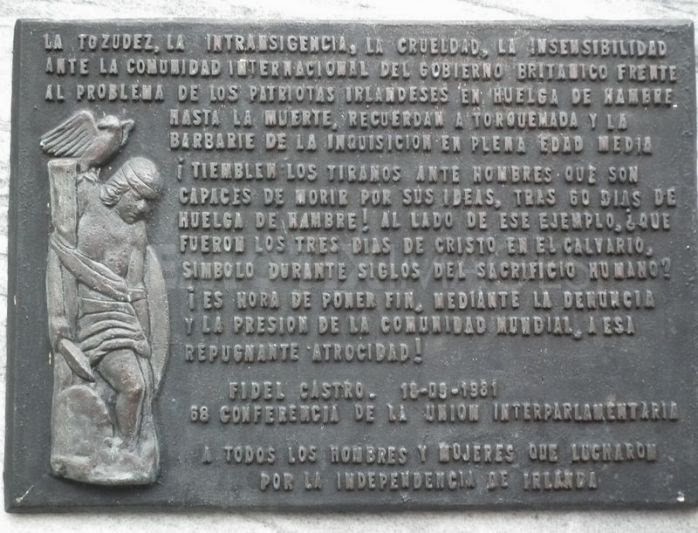Tour bookers hopeful ease rules on travel to Cuba
Post on: 16 Март, 2015 No Comment

While more than half a million Americans are already traveling to Cuba legally every year, the door could open wider. There are indications of a thawing of relations, even as the decades-old embargo remains in place, according to travel professionals who gathered Saturday at The New York Times Travel Show.
Currently, visits by Cuban family members are allowed as well as tour groups that follow cultural agendas that don’t allow much independent travel.
I think there will be general licenses before the spring is over, said John McAuliff, the executive director of the U.S. not-for-profit Fund for Reconciliation and Development. It means you can stay in bed and breakfasts, eat in private restaurants, take the public buses, rent a car and pick up Cuban hitchhikers. It becomes a totally different process of engagement.
Raymond McGrath, the U.S. State Department’s coordinator for Cuban affairs, participated in the Cuba panel at the travel show and acknowledged that changes have been underway. But he advised travelers and tour operators to research their trips, make sure they’re not stage-managed the entire time, and then return to the U.S. to add to educated debate on the topic.
Cuba caused a lot of trouble, McGrath said. Fidel Castro caused a lot of trouble for a lot of people all over the world for a long, long time. And the reason that to a certain extent ended was because he ran out of money, not because he had a change of heart.
But things have changed and change will continue to happen, he added. It is U.S. policy to encourage purposeful travel. as well as family travel to Cuba. I’m very encouraged by what my co-panelists are saying today. It gives me a little hope that things may be changing with respect to their relationship with the organizers in Cuba, because the Cuban government controls your movements pretty carefully, and if that’s changing, that’s great.
Amy Langfield | CNBC
Members of Metamovements Latin Dance perform at a panel featuring John McAuliff of the Fund for Reconciliation and Development, Ray McGrath of the State Department and Yves Marceau of Road Scholar.
The Obama administration has been working on nontravel issues as well, McGrath said.
We’re trying to find a way that we can work with the Cuban government on. issues that are so clearly in the U.S. national interest, that regardless where you fall on the political spectrum you pretty much have to agree, he said, pointing out the 750-mile shared maritime border.
Over the last couple years we’ve. lowered the volume of the two-way rhetoric, McGrath said. We’ve been working to take a more pragmatic approach. What we don’t want to end up with is an oil spill off the west coast of Cuba, coming up into Florida, or some other kind of problem—a plane going down in the straits—and we’re reaching for our Rolodex and trying to figure out who the heck to call.
Cuba has has been allowing pockets of private ownership, though often with steep taxes. Its tourism industry grew just 1 percent last year, and Cuban officials hope it improves, said Antonio Diaz Medina, an economist and professor of tourism at the University of Havana and former vice president of Cuba’s Havanatur Group.
In addition to the 60,000 state-owned hotel rooms (as of 2012) an estimated 12,000 bed and breakfast-style private rooms have become available in the past four to five years, he said.
While the service at Cuban hotels and the quality of restaurants are better than a few years ago, Cuban needs foreign investment to further advance, said Diaz, who also took part in Saturday’s panel and has been meeting with college hospitality programs in the U.S.
We also need advice from here. that spirit of entrepreneurship, he added.
We know that many American hotels would like to come in, Diaz said. We hope it will be sooner than later.
Cuba-U.S. relations have a number of challenges, including human rights issues, spying allegations and, recently, Havana’s inability to process visa applications because it couldn’t find a U.S. bank to handle its accounts, The Miami Herald reported.
But movement has come from surprising places, such as the 76-year-old sugar tycoon and longtime Castro foe Alfonso Fanjul, who told The Washington Post last month that he is open to investing in Cuba under the right circumstances.
In an interview with CNBC, McAuliff cited the interview as one of many signs the political ground may be shifting.
I think [McAuliff] is very optimistic—I hope he’s right, said Peggy Goldman the president of Friendly Planet Travel, which arranges people-to-people trips to Cuba. Even if it doesn’t happen, the status quo is better than it was.
Marine biologist David Guggenheim, who over the past 13 years has traveled to Cuba 73 times via his work with Ocean Doctor, said he hopes the island nation opens up in a way that preserves its environment, especially the pristine coral reef in the Gardens of the Queen.
While Cuba has policies in place to protect marine life, his concern—based on what he’s seen in Florida and other parts of the Caribbean—is what will happen if travel from the U.S. widens significantly and those billion-dollar checks start getting waved around, he said.
Guggenheim hopes that by the time large numbers of tourists arrive, sustainable, eco-focused travel is so ingrained in Cuba’s travel industry that there is no temptation to sell out.To promote that concept, he’s helping organize an environmental economics conference in Cuba.
But history shows it’s hard to predict what happens in Cuba.
I’ve given up trying to predict what’s going to happen, Guggenheim said. The door has been open for three years. Cuba is changing. … We don’t know what the future holds, good or bad.
—By CNBC’s Amy Langfield. Follow her on Twitter at @AmyLangfield .
Follow Road Warrior on Twitter at @CNBCtravel .














